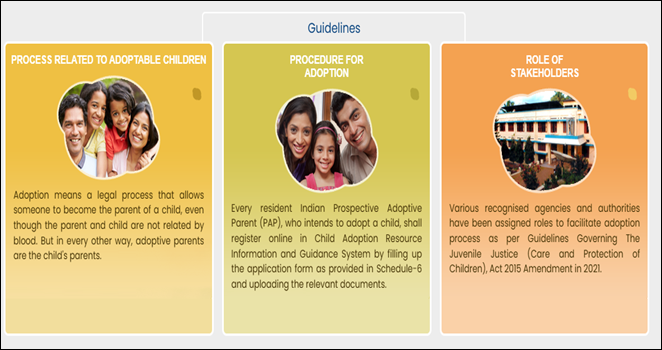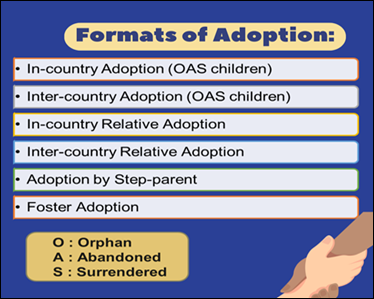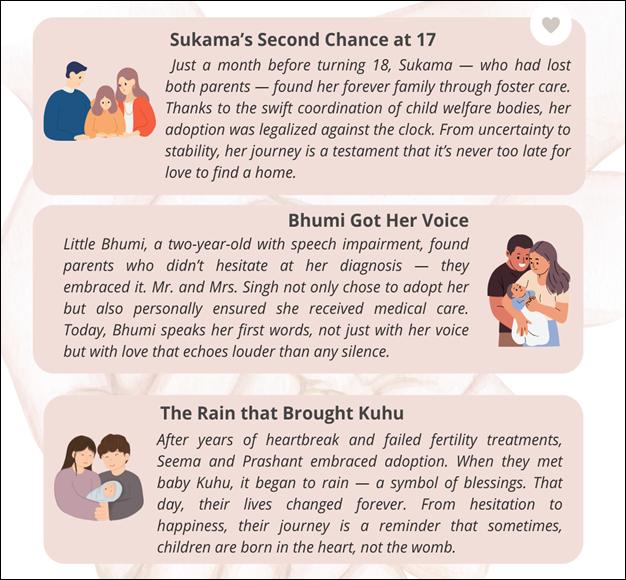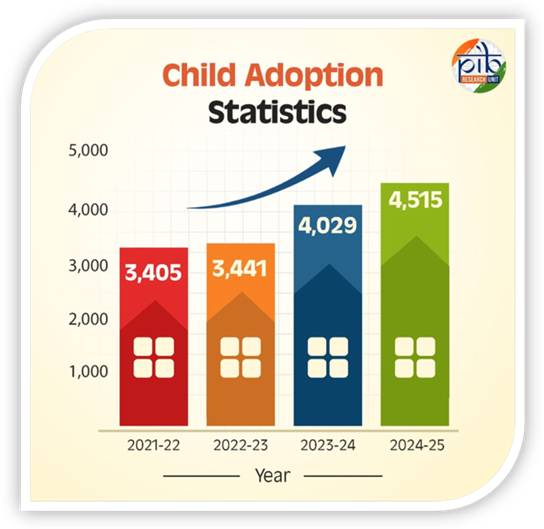“I love you Mom because you take me out to play…”
Moksh’s mother had tears in her eyes when she read this simple, loving, and heartwarming note written by her son in uneven letters and wobbly handwriting. Though it seems like just ten simple words written by a kid to his mother. But behind those words lies a powerful story of love, waiting, and hope.
Moksh was born with a condition called “knock knees,” which made his legs bend inward. He was left at a Child Care Institution when he was just a day old unaware of anything in this new world. He was put up for adoption. For four years, families walked in and out of his life—pausing, hesitating, moving on. His condition was listed on the form. And that was often the end of the conversation.
Until one day, it wasn’t.
In 2021, a couple saw him, not the label, not the diagnosis, but ‘Their child.’ To them, he wasn’t a problem to solve, he was their son, waiting for them from the day he was born. The second wave of COVID-19 made the wait even longer. But they didn’t let him go, they stayed—through video calls, telling him bedtime stories through screens, making him smile from far away and patiently waiting to hold him in their arms.
Finally, before the New Year, Moksh came home. His new parents enrolled him in swimming to help his legs, took him for regular check-ups, and gave him love and care. Today, Moksh is not just healthy—he’s thriving. He learned to swim, act in plays, and most of all, fly through the air in parkour, that bold sport of leaps and climbs and courage. From a child once left behind… to being named ‘Student of the Month’.
Moksh’s story is one of love triumphing over hesitation. And across India, many more stories like his are finally being written. Over the years, legal adoptions in India have seen a boost with families coming forward to give home to orphaned children. In FY 2024-25, India saw a record 4,515 adoptions—the highest in nearly a decade. Of these, 4,155 were domestic, marking a powerful shift in societal attitudes. It’s no longer rare for Indian families to adopt. It’s becoming a choice made with open hearts and open arms.
The Promise of Legal Adoption
Driving this transformation is the Central Adoption Resource Authority (CARA), with its mission to ensure no child is left behind. The statutory body under the Ministry of Women and Child Development ensures that adoptions should happen legally and ethically to safeguard innocent children.
It functions as the nodal body for the adoption of Indian children and is mandated to monitor and regulate in-country and inter-country adoptions. It is designated as the Central Authority to deal with inter-country adoptions by the provisions of the Hague Convention on Inter-country Adoption, 1993, ratified by the Government of India in 2003. CARA primarily deals with the adoption of orphan, abandoned, and surrendered children through its associated /recognized adoption agencies. CARA is working day and night through on-ground activities, training sessions, and social media campaigns to promote legal adoptions. As adoption is not just about legal contracts, it is more of an emotional journey that both parents and child take together, the process becomes even more important.


Before planning to adopt, the Prospective Adoptive Parents must go through the eligibility criteria mentioned on CARA’s website. Illegal adoption is concerning as it amounts to child trafficking and is a punishable offense under The Juvenile Justice (Care and Protection of Children) Amendment Act, 2021.
Illegal Adoption refers to taking direct, immediate and unsolicited custody of a child in need of care and protection. |
More Children, More Hope
For years, one of the biggest hurdles in adoption was the gap between children in need and parents willing to adopt. But 2023–24 marked a turning point.
- Over 8,500 children were identified and added to the adoption pool—many of them from institutions where they had long waited to be seen, chosen, and loved.
- 245 new agencies were added to CARA’s network, making adoption more accessible than ever.
These are not just policy wins—they are acts of restoration. Every child added to the list represents a new possibility for connection, belonging, and a chance to be a child again.
Stories of Finding Home

References:
- https://cara.wcd.gov.in/
- https://cara.wcd.gov.in/glimpse/sucess_story.html
- https://pib.gov.in/PressReleseDetail.aspx?PRID=2117433®=3&lang=1
- https://pib.gov.in/PressNoteDetails.aspx?NoteId=153436&ModuleId=3®=3&lang=1
- https://www.facebook.com/cara.nic.in/posts/please-adopt-ch
- https://www.facebook.com/reel/1156048035825454
***





